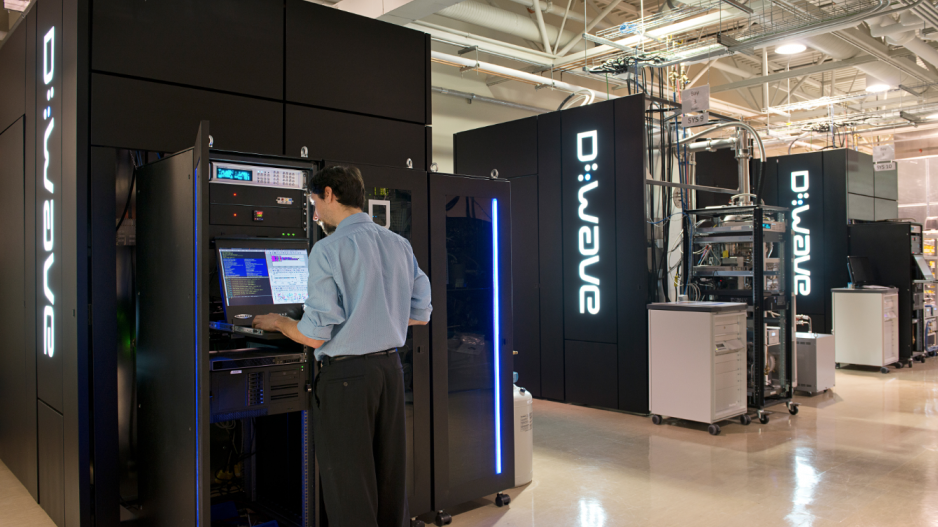Simon Fraser University’s quantum computing aspirations are getting a boost from the federal government.
Ottawa announced Friday it’s committing $2.2 million to SFU’s Quantum Algorithms Institute in Surrey as part of a bid to renovate a physical location to host industry events and conferences.
The goal is to use the new hub to shore up a specialized talent pool and nab more potential customers for quantum computing companies.
While traditional computers use two bits – ones and zeros – to make calculations, quantum computers rely on qubits.
A qubit is capable of “superposition,” meaning it can be one and zero at the same time, which allows it to calculate all possible values in a single operation and open the doors to previously impossible computations.
“This technology will significantly impact many sectors, including manufacturing, natural resources, finance, engineering, healthcare, defence, transport, telecommunications, cyber security and the life sciences, really to name just a few,” Liberal MP for Burnaby-North Terry Beech said over a Zoom announcement.
The federal government’s $2.2 million comes after the province earmarked $17 million over five years back in 2019 for the Quantum Algorithms Institute.
The institute is creating a new graduate degree program in quantum computing — an initiative the province said would help secure more B.C. talent for the sector.
When the facility opens in spring 2022, it will be offering training, industry workshops and research seminars.
Industry partners include Burnaby-based quantum computing firm D-Wave Systems Inc., Vancouver software developer 1Q Information Technologies Inc. (1QBit), Amazon.com Inc. (Nasdaq:AMZN) and Microsoft Corp. (Nasdaq:MSFT).
D-Wave announced in May it was launching a $120-million project aimed at advancing the company’s systems.
The federal government committed $40 million to the project at the time.
The latest endeavour from the quantum computing firm is focused on further developing its software and hardware systems, and the company will be creating and maintaining 200 jobs as it builds a new and more powerful processor.
D-Wave is also committing to spend $480 million on research and development as well as hiring up to 10 co-op students.
The B.C. firm is a pioneer in its field, building what many consider to be the world’s first commercially viable quantum computer.
It has sold systems to Google, U.S. defence company Lockheed Martin Corp. (NYSE:LMT) and Los Alamos National Laboratory.
1QBit is the next biggest name in B.C. after D-Wave when it comes to quantum computing.
Its software is best known for chemistry and finance applications but last year it began deploying its first medical product, known as xrAI (pronounced “X-ray”).
The AI-powered tool examines X-ray images and highlights abnormalities for physicians, helping them better identify patients with respiratory complications such as SARS, pneumonia and tuberculosis.
Those applications have since expanded to assist with COVID-19.
“The interest for us has always really stemmed from what eventually we’re hoping quantum computing will be relevant [to],” 1QBit president Landon Downs told BIV last year.
Meanwhile, 1QBit has also been bolstered by funding from Fujitsu Ltd. (TYO:6702), which led a $45-million Series B funding round for the software firm in 2017.
Fujitsu Intelligence Technology Ltd. CEO Naoko Yoshizawa told BIV the following year that the multimillion-dollar investment helped inform her company’s decision to set up its global artificial intelligence headquarters on the West Coast.




